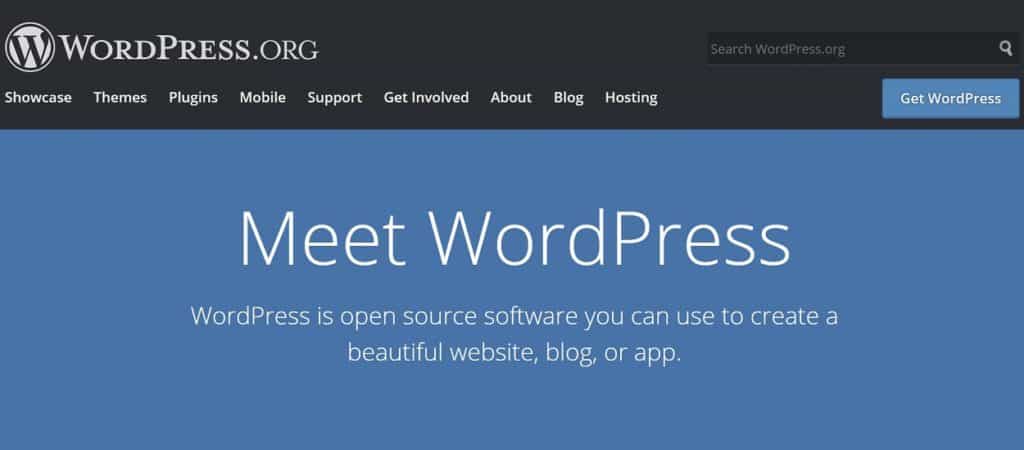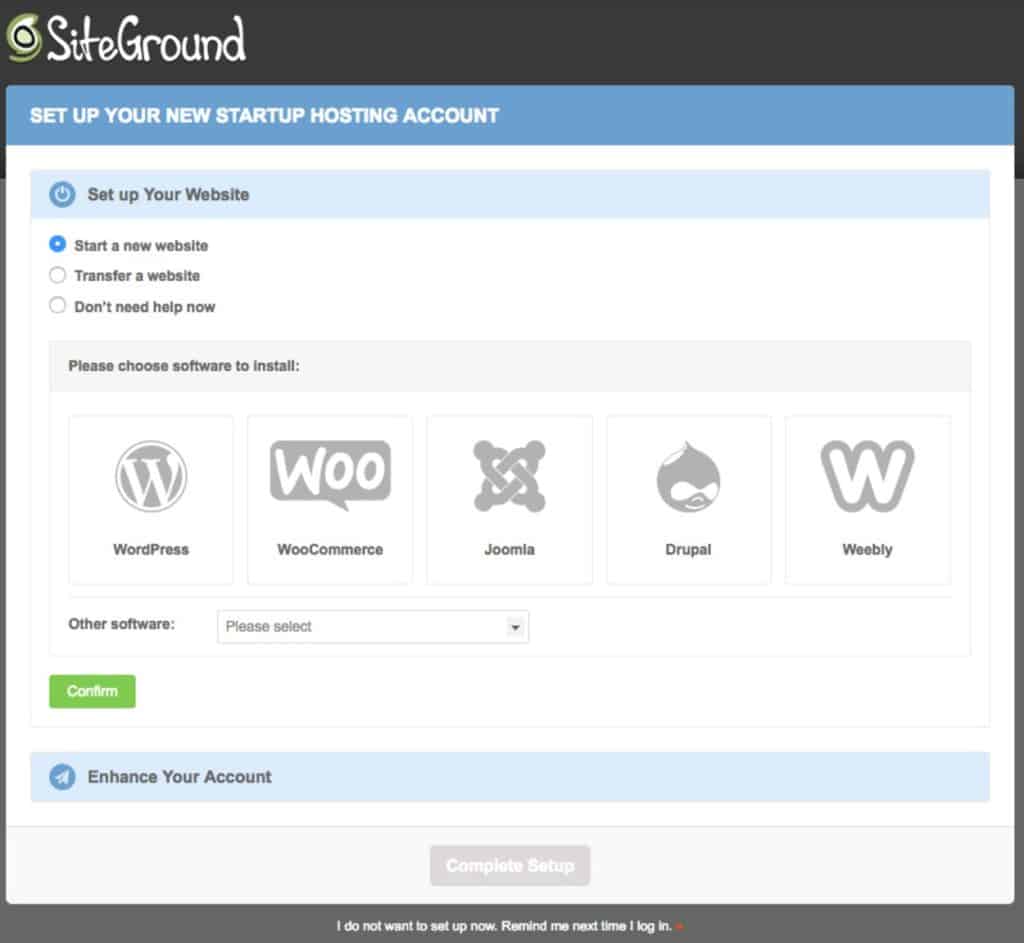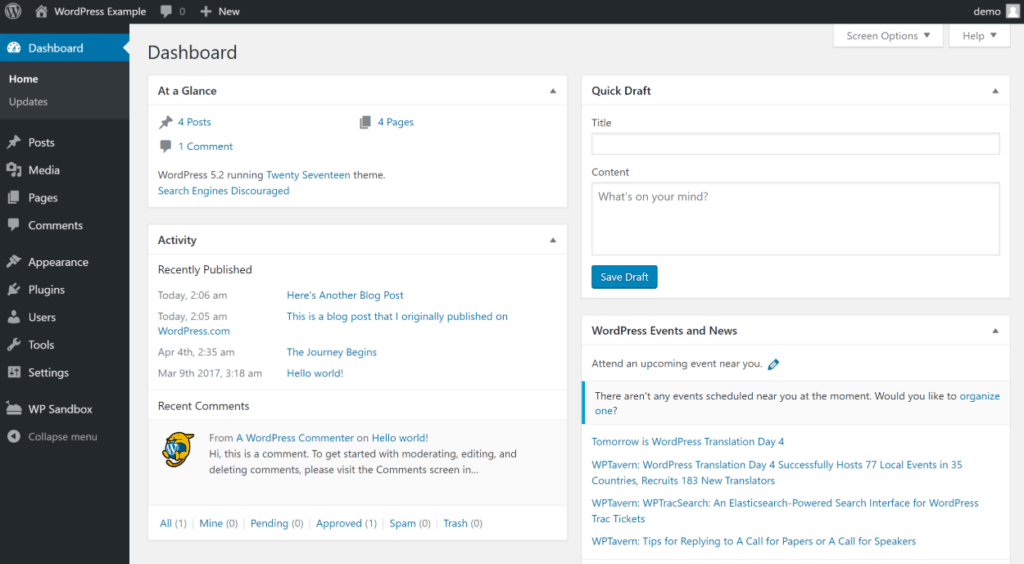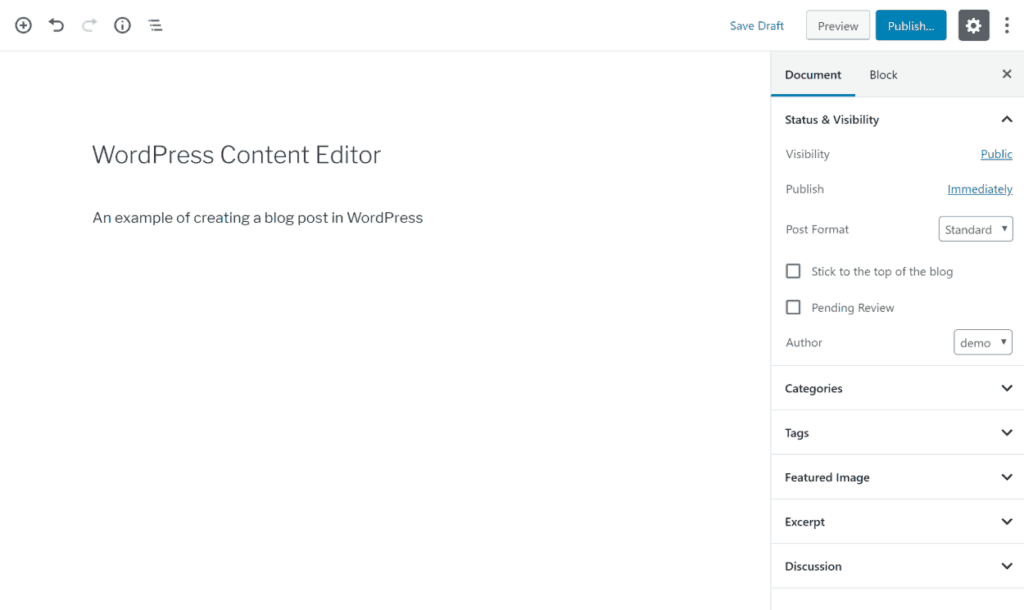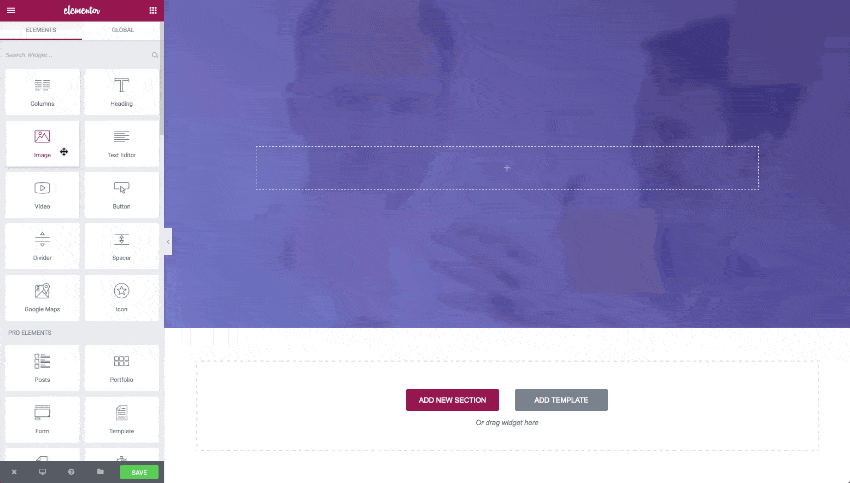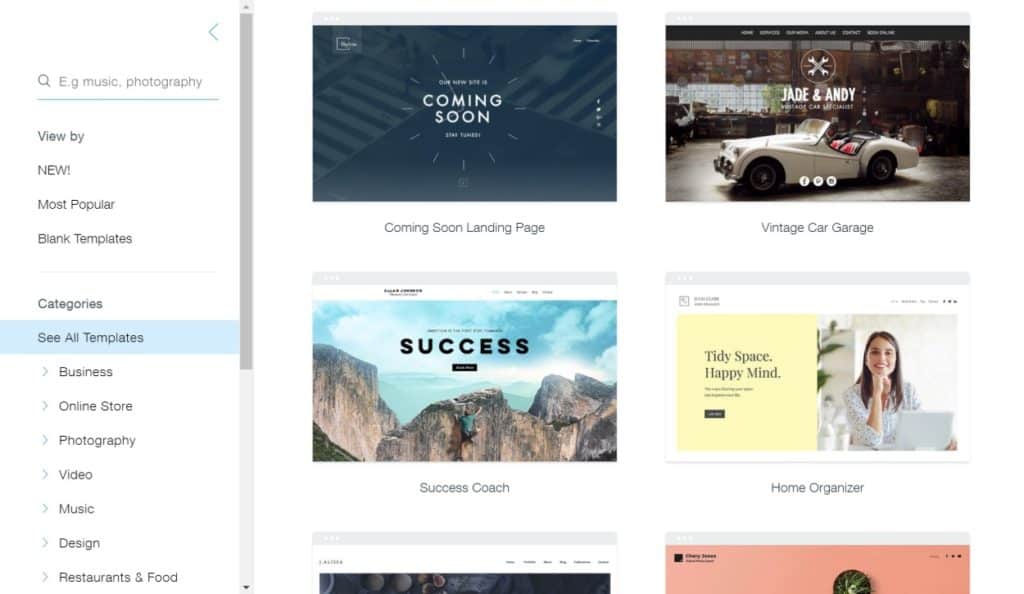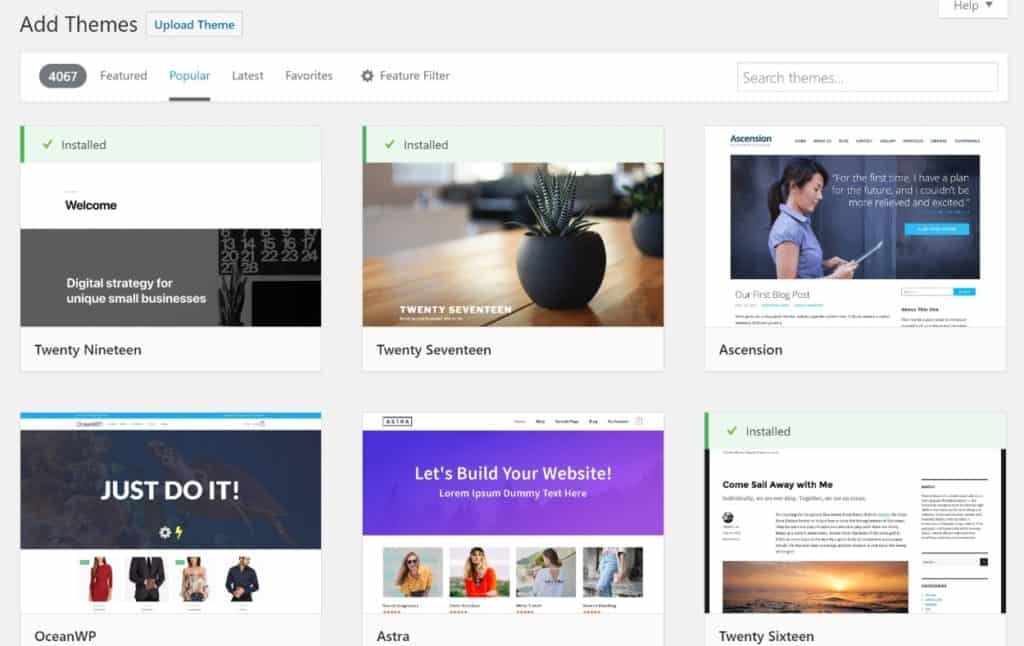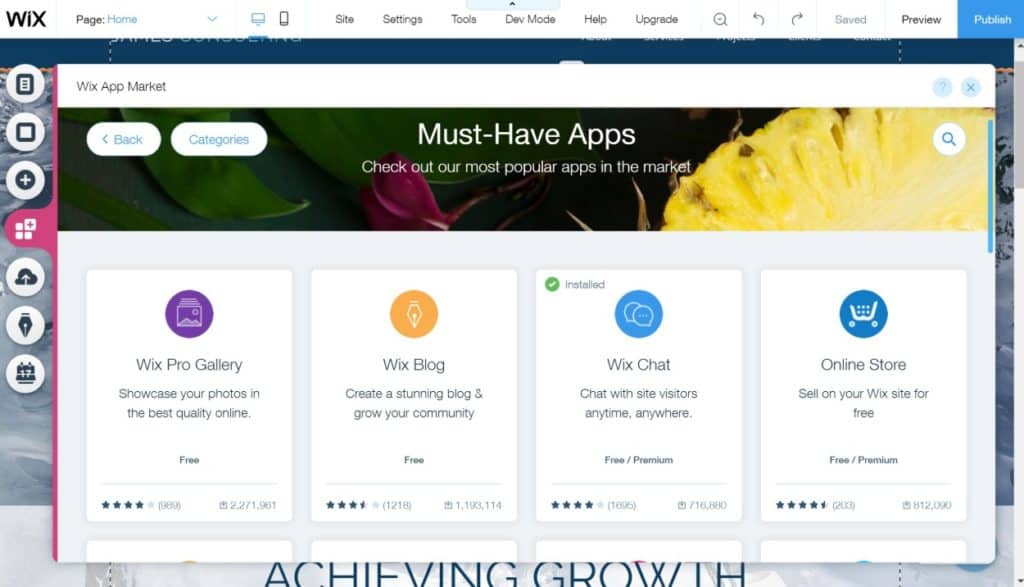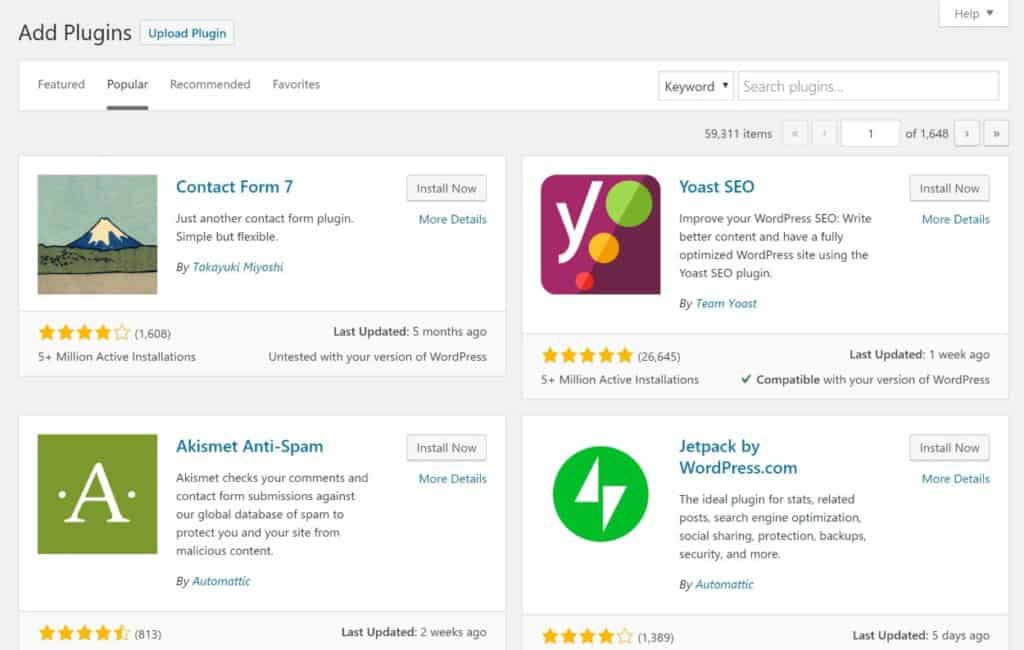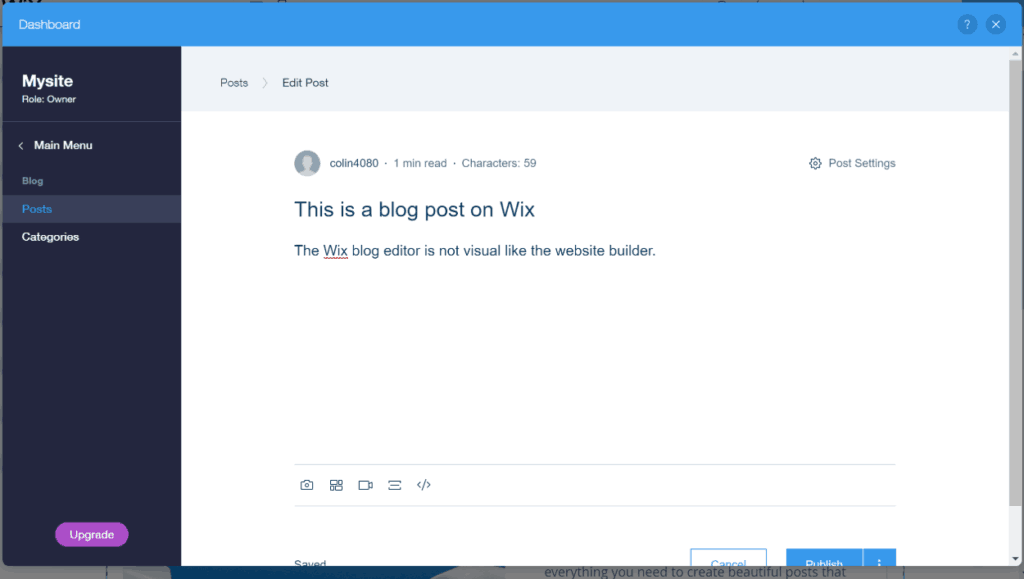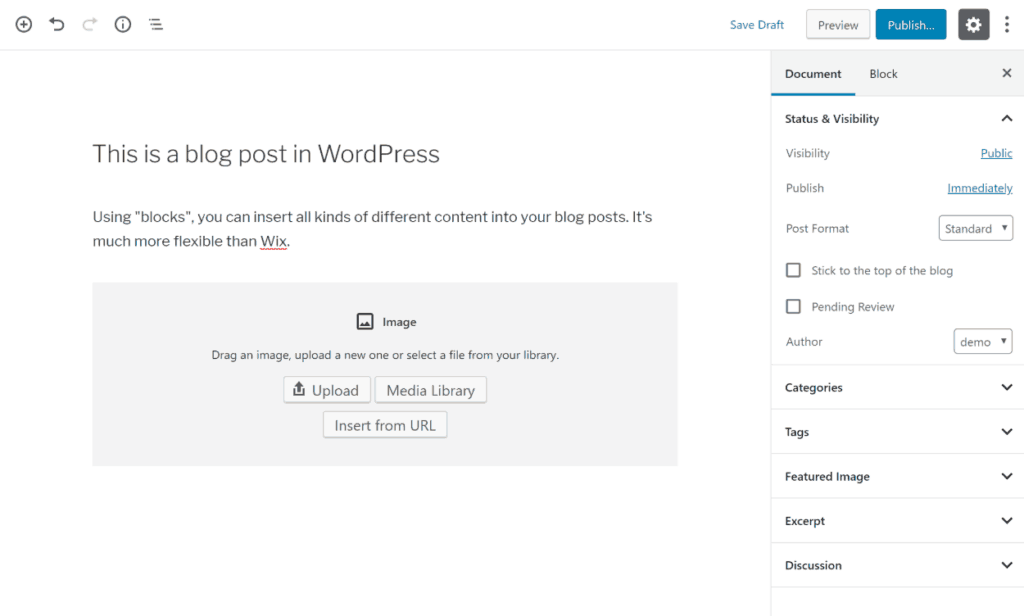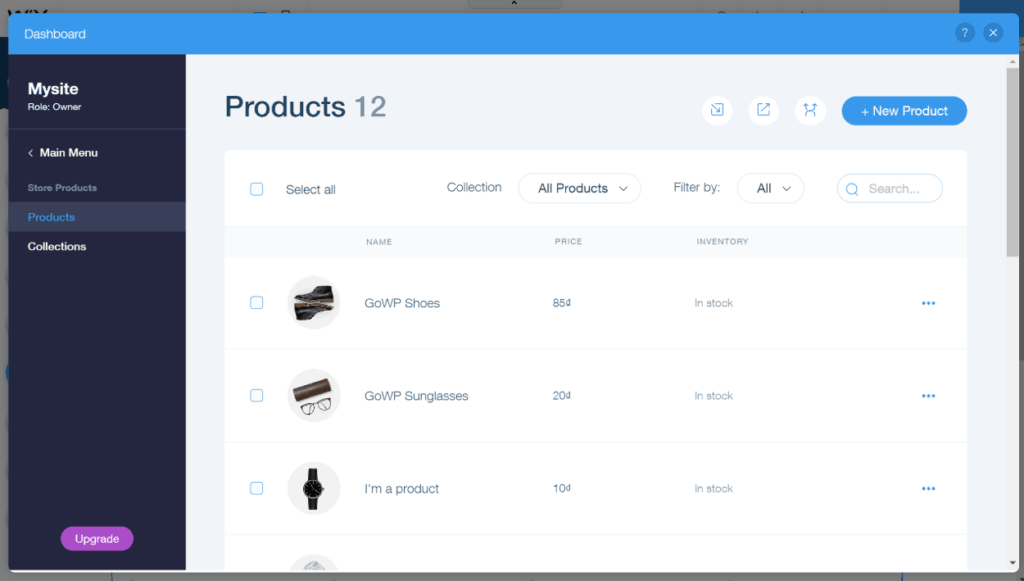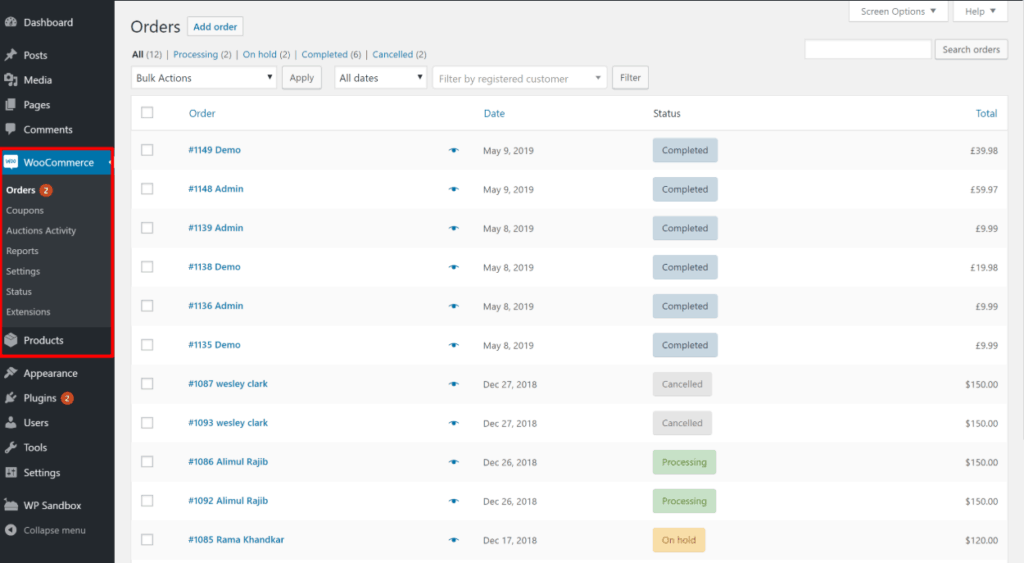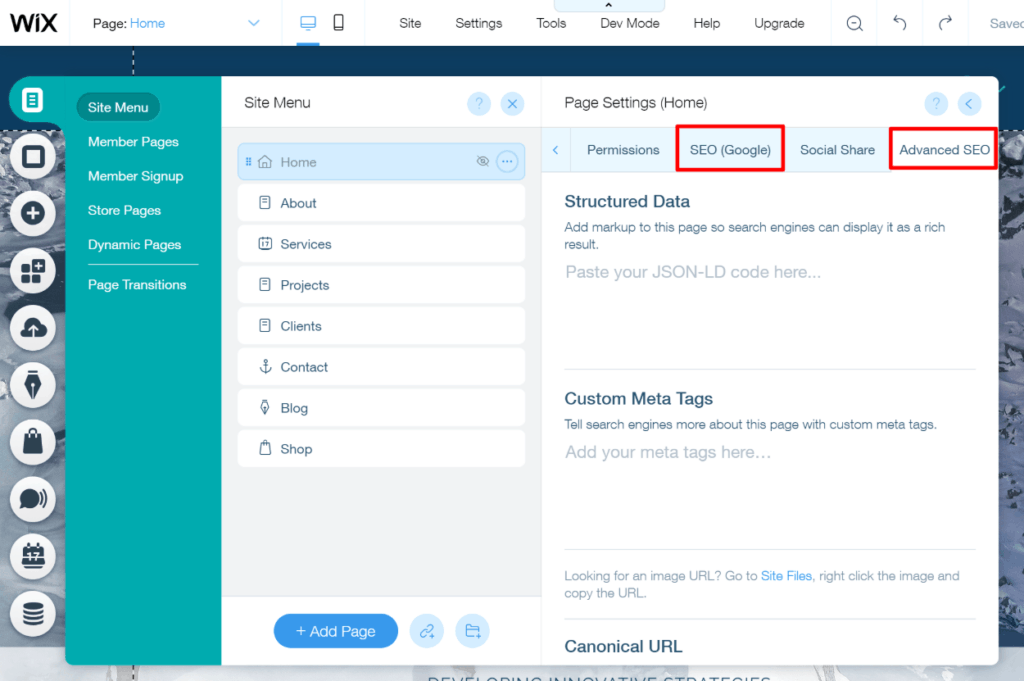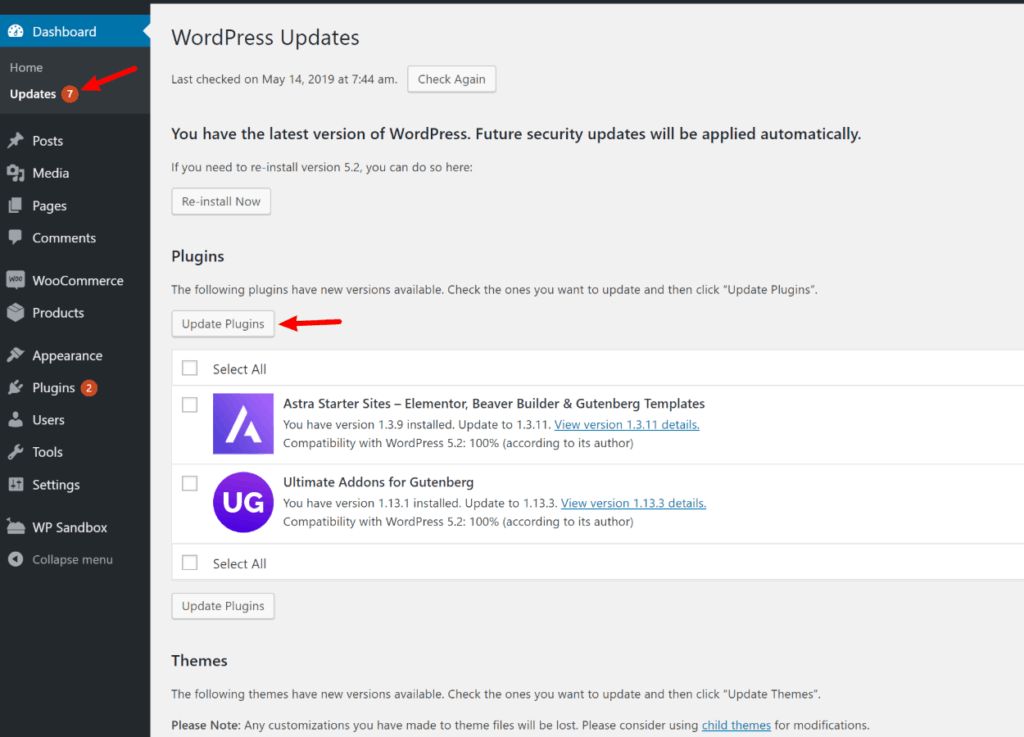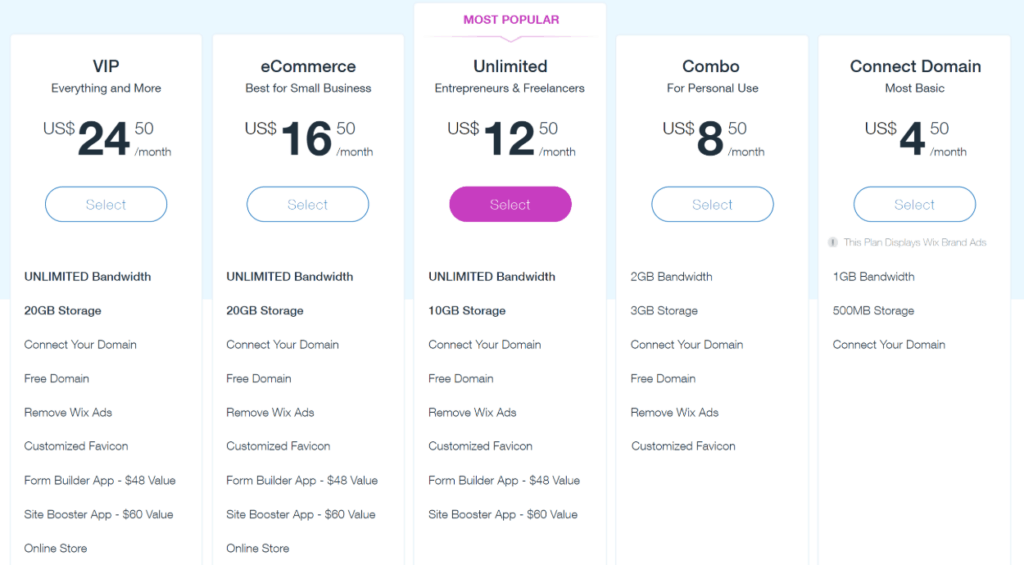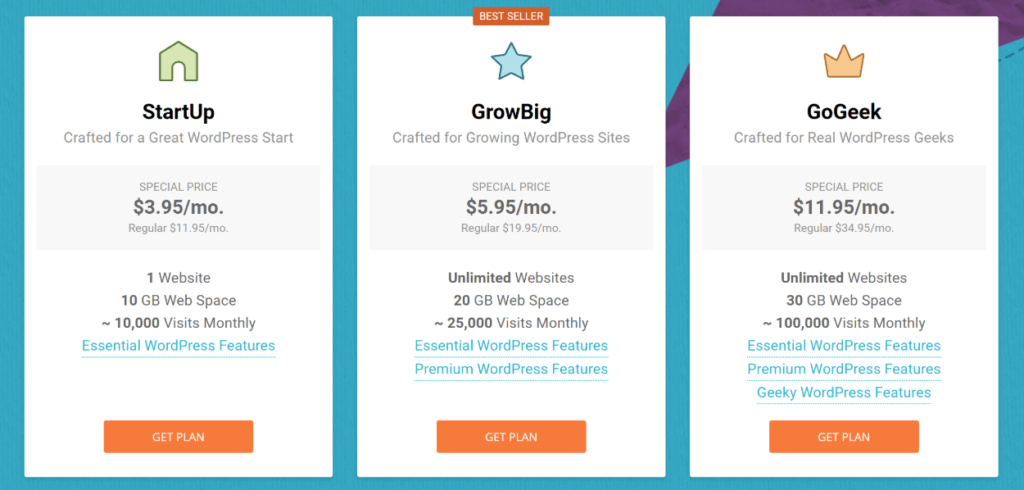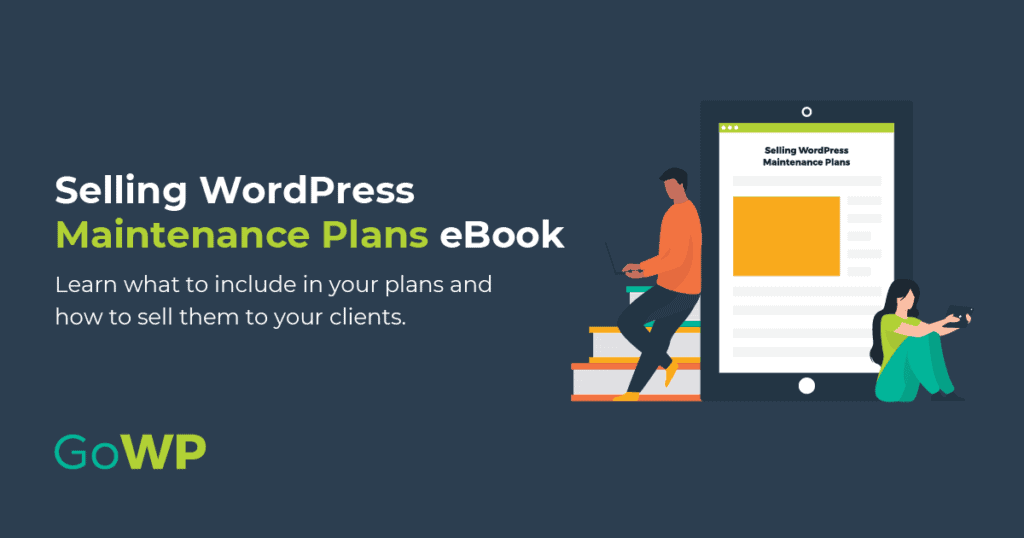Struggling to choose between Wix vs WordPress to build your website?
If you’re looking to make a website, these are two of the big names. And when you’re dealing with something as important as your website, you want to ensure you make the right decision from day one.
Well – spoiler alert – there’s not one single winner that’s right for 100% of situations. But there are some key differences between WordPress vs Wix, and I’m going to help you find them in this post.
Keep reading for a detailed, hands-on comparison of Wix vs WordPress…
Note – for this Wix vs WordPress comparison, we’re referring to self-hosted WordPress.org, not WordPress.com. Despite the identical names, the two are actually different things, and WordPress.com is just one specific implementation of the WordPress.org software.
Wix vs WordPress: Introducing These Two Tools
Before I get into the more detailed, hands-on Wix vs WordPress comparison, I think it’s helpful to start with a general introduction to these two tools because they both have different philosophies about the best way to build a website.
WordPress is a self-hosted, open-source content management system that, by the numbers, is by far the most popular way to build a website in existence. According to W3Techs, WordPress powers almost 34% of all the websites on the Internet. Yes – that number is as crazy as it sounds. More than one-third of all the websites out there run on WordPress.
The WordPress software is free and, because it’s open-source, anyone can view, modify, or extend the code.
Wix, on the other hand, is a hosted website builder tool that makes it easy for anyone to create a website. According to W3Techs, Wix powers a little over 1% of all the websites on the Internet…so not quite as popular as WordPress. That’s not a knock on Wix – it’s growing in popularity and a great tool. It’s just that the scale is a little different…
Wix is not open-source, which means that you cannot view and modify the core Wix code (though you do get some options for working with code – more on that later).
How is WordPress Different From Wix?
In order to answer the question of “how is WordPress different from Wix”, I think the most important thing to understand is the difference between a self-hosted platform and a hosted platform.
With a self-hosted platform (WordPress), you’ll purchase your own web hosting and install the software on that web hosting. Think of it kind of like renting space on a computer to power your website’s software.
On the other hand, with a hosted platform, you’ll sign up at a service (like Wix), and that service automatically handles hosting the software for you. In fact, you never have to interact with the underlying software like you would with a self-hosted platform.
The hosted platform sounds simpler, right? It is indeed…
Because the service takes care of the basic software and maintenance, a hosted website builder is always going to offer the absolute simplest way to get started with a website.
However, there’s a tradeoff there…
By handing over responsibility for the underlying software to a hosted service, you’re sacrificing a lot of flexibility.
See, with a self-hosted platform like WordPress, you have 100% control over everything. You can modify whatever you want, and this means you can make your site do exactly what you want it to (though sometimes you might need some expert help).
However, with a hosted platform like Wix, you can only make the changes that the service lets you make. So if you want to make a tweak outside of that…well, you’re out of luck because you don’t get access to the underlying software.
So at a very high-level, you can say that choosing between WordPress and Wix is kind of like a balancing act between flexibility and simplicity.
Of course, there are plenty of other relevant considerations like price, design/functionality options, SEO, etc. But remembering that fundamental difference between a self-hosted and hosted website builder will help you make sense of things as we get into the more detailed WordPress vs Wix comparison.
Wix vs WordPress: Comparing Key Areas
Now that you know the fundamental differences between Wix and WordPress, let’s get a little more specific and dig into some key comparison areas of these two tools. Here’s what we’ll look at:
- Ease of use
- Themes and design options
- Plugins and apps
- General flexibility
- Blogging
- eCommerce
- Search engine optimization (SEO)
- Maintenance
- Prices
Ease of Use ?
As we set up at the beginning, Wix is ahead when it comes to ease of use. However, because WordPress is so popular, there are lots of tools and services that also make WordPress quite simple to use, so the difference is not as big as what you might expect.
So if you’re wondering, “which is the easiest website builder out of the box?”, then the winner is Wix. However, WordPress can offer similar ease of use…just with a little more setup process.
Wix
With Wix, you just sign up for an account and go through the simple setup wizard:
From there, you’ll be able to edit and design your website using a visual, “what you see is what you get” (WYSIWYG) editor. You can click on content to edit it, drag things around, etc:
While there is still a learning curve, you don’t need any special technical knowledge to customize your website and you can be designing your website within the first five minutes.
WordPress
With WordPress, there are a few extra steps to get started.
Before you can build your website, you’ll need to purchase your own web hosting and install the WordPress software.
Now, this might sound a little daunting, but I promise you that it’s much easier than you might think (again, this is the benefit of WordPress’ popularity).
For example, if you purchase hosting from SiteGround, a popular WordPress host, they’ll give you a site setup wizard that lets you preinstall WordPress – no technical knowledge required:
Once you install WordPress, you’ll manage your site from the WordPress dashboard:
Here, you can use “themes” and “plugins” to control your site’s looks and functionality. I’ll cover these in more detail in a second, but they basically give you a way to control your site without needing to have any technical knowledge yourself.
By default, you’ll create content using a backend editor, unlike the visual approach that Wix uses:
However, by using a free page builder plugin like Elementor, you can give WordPress the same visual, WYSIWYG, drag-and-drop editing approach that you get with Wix:
Basically, there are some extra steps involved in getting started with WordPress, but WordPress is definitely still something that a non-technical person can use.
There are a lot of different page builders to choose from. We also like Beaver Builder and even partnered with them on a webinar about how to speed up your WordPress website.
Themes and Design Options
Rather than forcing you to design your site from scratch, both Wix and WordPress let you use (and then customize) premade designs. Wix calls these designs templates, while WordPress calls them themes.
When it comes to the number of premade designs available, WordPress is the clear winner.
Wix
Wix offers 500+ premade templates for you to choose from, which gives you plenty of options. You’ll be able to select your preferred template during the setup wizard, and then customize it using the WYSIWYG interface I showed you above:
WordPress
Wix’s 500+ premade templates give you a lot of choices…but Wix’s selection doesn’t hold a candle to WordPress because WordPress offers tens of thousands of free and premium themes.
From inside your WordPress dashboard, you can search thousands of free themes and install them with the click of a button:
And you’ll also find thousands more premium themes that you can install by uploading a ZIP file to your site. The exact price of these premium themes depends on the developer, but the average cost of a WordPress theme is ~$60.
Once you install a theme, you can customize it by using the real-time WordPress Customizer, which lets you make tweaks via a non-technical options sidebar and preview changes in real time.
So if you want the most design choices, WordPress is the clear winner.
Plugins and Apps
Next, let’s compare another type of extension – plugins (WordPress) and apps (Wix). Whereas themes and templates help you control how your website looks, plugins and apps help you add new functionality to your WordPress site.
In terms of selection, WordPress is the clear winner here because, as with themes, you’ll find tens of thousands of plugins to choose from.
WordPress is able to offer this huge selection because it has an open ecosystem where anyone can create a plugin and share it with others.
That’s great for choice, but it also means that there’s no guarantee of quality. So you’ll find some really great plugins, as well as some poor ones. That means you’ll need to be diligent about reading reviews and carefully choosing which extensions you use on your WordPress site.
On the other hand, while Wix’s selection is more limited, all the apps have been carefully vetted to guarantee a minimum level of quality.
Wix
Wix lets you add new apps via the Wix App Market.
Here, you’ll find apps both from the Wix team, as well as from vetted third-party developers:
Many of the apps are 100% free. However, if you need a premium app, you’ll normally pay a monthly fee for as long as you want to use that app, which can add up over time.
WordPress
As with WordPress themes, you’ll find both free and premium WordPress plugins.
The official WordPress.org plugin directory has over 55,000 free plugins alone, all of which you can search and install right from your WordPress dashboard by clicking a button:
Beyond that, you’ll also find thousands of other premium plugins that you can install by uploading a ZIP file.
Unlike Wix, most of these premium plugins are typically a one-time fee. That is, you pay once and you get to use the plugin forever. Some developers require you to renew your license after a year to continue receiving updates – but you’ll normally be able to continue using the existing version that you have even if you don’t pay to renew.
General Flexibility
Now that we’ve already covered the design and functionality flexibility that you get from extensions, let’s dig into the general flexibility of each platform.
That is, if you want to make a change that you can’t do with an off-the-rack app or plugin, what options do you have?
Typically, making these changes will require development knowledge (or hiring a developer). But even if you’re a non-technical user, it’s good to have the option to make your own changes when needed, because you never know when you might really need a new feature.
When compared with other website builder tools, Wix is actually one of the more flexible options, but it still doesn’t give you 100% access as you get with WordPress.
Wix
Wix gives you some helpful options to get at the underlying code of your site via its Corvid service.
With Corvid, you can edit all the frontend code of your site using an online IDE. And you can even set up your own databases to manage data and use a frontend API to create your own applications.
You’ll definitely need to hire a developer to benefit from all of the Corvid tools, but this is one area where Wix excels in comparison to other hosted website builders (like Squarespace).
WordPress
As good as Wix is in comparison to other hosted tools, WordPress is always going to be the absolute most flexible because you have 100% access to everything.
You can edit 100% of the source code, get full access to your database, and even create your own applications using the WordPress API.
So with a developer in tow, you can pretty much make WordPress do…anything.
Blogging
Next question – is Wix or WordPress better for blogging?
Both can be used to create a blog, but because WordPress started as a blogging platform (before moving into a full content management system), the blogging experiencing feels a bit more integrated and feature-rich with WordPress.
So if you’re specifically looking to create a blog, WordPress will make a better option for your needs.
Wix
In order to start blogging with Wix, you’ll need to install the free Blog app. From there, you can create new blog posts using the popup editor.
While the rest of Wix is visual and WYSIWYG, this editor is not visual, and is actually a lot less flexible than WordPress.
You can insert:
- Images
- Galleries
- Videos
- Dividers
- HTML code
But that’s it:
All in all, the functionality is pretty limited.
If you just want to add a basic blog to an existing site, it might be all you need. But if you’re specifically setting out to create a blog as your site’s core functionality, Wix is not your best option.
WordPress
As I mentioned above, WordPress started as a blogging platform, so WordPress really excels when it comes to creating a blog. In fact, most of the popular blogs you encounter are probably running on WordPress (including this one).
Unlike Wix, blogging functionality is native to your site with WordPress – not a separate app – and you can start blogging from day one.
Beyond that, you also get a more robust blog content editor. For example, when you go to create a blog post you’ll be able to insert all kinds of content, including:
- Images
- Galleries
- Videos
- Quotes
- File downloads
- Multi-column layouts
- Tables
- Buttons
- Etc.
And with free extensions, you can easily incorporate lots of other content, too.
eCommerce
If you want to launch an eCommerce store, both Wix and WordPress offer full eCommerce functionality to help you do so. However, as with blogging, WordPress is going to give you a lot more functionality.
For a simple store, Wix is fine. But if you want a detailed, flexible store, you’ll be happier with WordPress (or maybe even a dedicated eCommerce platform like Shopify).
Wix
While Wix does offer eCommerce functionality, it’s not the sole purpose of the service. So if you exclusively want to create an eCommerce store, Wix is not really a good option for your needs.
However, where Wix is a viable eCommerce option is if you just want to sell a few products via your website. For example, if you just want to create a simple merch store for your band’s website, Wix’s eCommerce functionality is definitely powerful enough to do that.
To add eCommerce functionality to Wix, you’ll install the eCommerce app. From there, you’ll get a separate dashboard where you can manage:
- Products
- Orders
- Basic store settings
- Etc.
WordPress
WordPress doesn’t include eCommerce functionality in the core software. However, there are a number of free plugins that add full eCommerce functionality, with the most popular option by far being a plugin called WooCommerce. This plugin is developed by a billion dollar company (Automattic), so it’s no small operation.
In fact, WooCommerce is the most popular way to create an eCommerce store. Period. It powers 22% of the top million eCommerce sites. The next most popular eCommerce platform is Shopify, at 19%.
In comparison to Wix, WooCommerce is a much more full-featured platform, and you’ll find lots of big and small eCommerce stores running it.
Once you install and activate the WooCommerce plugin at your WordPress site, you’ll get new features in your WordPress dashboard to manage:
- Products
- Orders
- Coupons
- Payment gateways
- Tax rates
- Etc.
You’ll also find a huge range of WooCommerce themes and plugins that you can use to make your store look great and add new functionality, like wishlists.
So whether you want to create a standalone eCommerce store or just sell a few products from your blog or website, WordPress makes a great option.
Search and Engine Optimization (SEO)
SEO is such an important part of online marketing that it’s natural to ask “is WordPress or Wix better for SEO?”.
For the average user, there’s no real difference between Wix and WordPress for SEO, and both let you optimize all the important basics. That is, SEO should not be a deciding factor between WordPress vs Wix, as both let you make the most important tweaks.
Wix
Wix gives you a few ways to control SEO.
First, each page gets its own SEO settings where you can set up unique titles and descriptions, including an Advanced SEO tab to add structured data:
Beyond that, Wix offers an SEO Wiz tool that walks you through some important SEO basics for your site as a whole.
WordPress
To control SEO for WordPress, you’ll find plenty of great free plugins, with the most popular option being Yoast SEO.
These plugins can help you set up:
- SEO titles and descriptions
- Structured data
- Canonical links
- Etc.
And some plugins can even analyze your content for keyword optimization, which is a step further than Wix goes.
But in general, you’ll have no problem optimizing both WordPress and Wix for SEO.
Maintenance
There’s more to a website than launching it – you also need to maintain it going forward to keep it secure and functioning properly.
From a maintenance perspective (or lack thereof), Wix is the clear winner, simply because you’re not really responsible for any of the maintenance when you make a website with Wix.
That’s not the case with WordPress, where you’ll need to stay on top of updates, backups, and other basic tasks.
Wix
This section will be pretty brief because, again, there’s not really any maintenance with Wix. Because Wix hosts the software for you, Wix will automatically apply updates and keep your data secure – you never need to lift a finger.
WordPress
Because you’re installing the WordPress software on your own server, you’re the one who will be responsible for basic maintenance with a WordPress site.
Maintaining a WordPress site isn’t especially technical, but it is something you’ll definitely need to pay attention to.
Now, this isn’t too much work, and you can find ways to automate some tasks. For example, WordPress will tell you when you need to apply updates, and all you need to do is click a few buttons to make the update live:
Or, you can also find free WordPress backup plugins that can automatically back up your content on a set schedule.
And if that’s still too much work, you can hire a WordPress maintenance service like GoWP or pay for a more expensive managed WordPress host to do this stuff for you.
Price
When it comes to Wix vs WordPress pricing, it can be a little hard to compare because the costs depend entirely on your needs.
Because the software is free, WordPress can be more affordable. But it can also be more expensive, depending on your situation.
In general, for a simple, low-traffic site, WordPress will be more affordable. But again, that won’t be the case for 100% of websites, and the exact price comparison will depend on your unique needs.
Wix
With Wix, your costs are always going to be a little more predictable. That is, the core Wix service is one monthly fee, and any premium apps that you use are also usually predictable monthly fees. That means you’ll always have a pretty good idea of how much you can expect to pay per month.
So how much does the core Wix service cost?
While Wix has a limited free plan (and some cheap paid plans), I believe the cheapest viable plan for someone running a Wix website costs $16 per month billed month-to-month (or $12.50 per month billed yearly). You’ll also get a free domain name if you go yearly – otherwise, you’ll need to spend ~$10 on your own domain name.
So if you pay for a year up front, you’re looking at $150 for your entire first year at Wix.
Why do I say this is the cheapest viable plan? Because it’s the cheapest plan that lets you create forms, and a website without a form isn’t much of a website at all!
If you want eCommerce functionality, you’ll need to go up another step at $20 per month.
And remember – any premium apps that you use will add to the cost.
WordPress
With WordPress, the only unavoidable costs are what you’ll pay for web hosting and your domain name (like Wix, many web hosts will give you a free domain name).
So how much does WordPress hosting cost? Well, it depends on the needs of your website. But when you’re just getting started, you can get hosting with plenty of power for as little as ~$4 per month.
In fact, that’s what the SiteGround host I recommended charges (though you’ll need to pay for a whole year upfront):
So for an entire year of hosting plus your domain name, you can spend under $60 for WordPress, which is significantly cheaper than Wix. Though like Wix, you might also want to pay extra for some premium extensions.
However, as your site’s content and traffic grow, you might need to upgrade to more powerful hosting, which can close the gap between prices, or even make WordPress more expensive.
Conclusion: Is WordPress or Wix Better?
Now for the million dollar question – is WordPress or Wix better for your needs? Which website builder is best?
Well, apologies for not being more decisive, but I think the only fair answer here is this:
It depends…
That is, Wix is better for some situations, and WordPress is better for others.
So let’s run through some scenarios to help you pick the right tool for your website.
If you’re just building a simple website and you’re not too fussed about being able to tweak things to make them perfect, then you might be happier with Wix. While you won’t get as much flexibility, it can definitely help you create a great-looking website, and you’ll never have to worry about maintenance or other technical issues. Plus, the Wix apps make it pretty easy to tack on basic eCommerce or blogging functionality.
On the other hand, if you do like the idea of having the flexibility to make your site be exactly how you want it, then WordPress is definitely the platform for you. You can make it do whatever you want, and the huge WordPress ecosystem of extensions lets you make a ton of customizations without requiring any technical knowledge.
Plus, WordPress can be a lot more affordable than Wix, especially when you’re just getting started.
Yeah, you will need to be in charge of maintenance for your WordPress site, but you can always offload that to us here at GoWP if you don’t want to be hands-on!
No matter which tool you choose, best of luck with your new website. Now, get out there and create something awesome.
Interested in partnering with GoWP? We want to meet you!
Create a free partner account with GoWP and get free access to resources that will help you grow your agency. The GoWP Knowledgebase offers lead magnets, landing page templates, and more!
Learn from workshops, webinars, and exclusive interviews from the experts – and join in on a little Happiness Hour fun in the Digital Agency Owners Facebook Group, a highly vetted community of agency owners.

